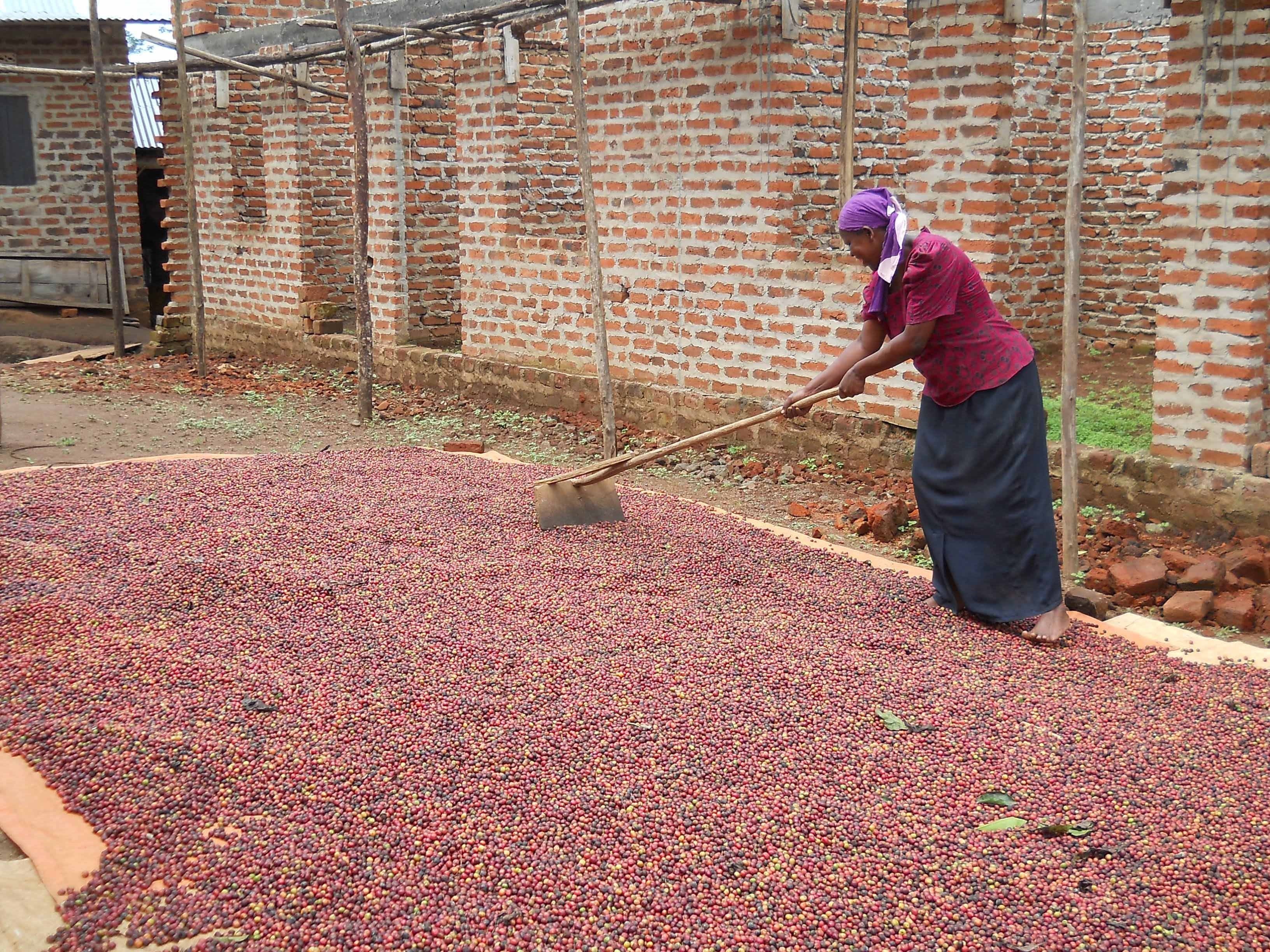Prime
How Masaka coffee farmers are keeping away thieves

A farmer spreads ripe coffee beans to dry in Masaka on April 25. Photo/Michael J Ssali
What you need to know:
- Mr Sowedi Sserwadda, the chairperson of Kibinge Coffee Farmers and Cooperative Society in Bukomansimbi District, called upon local leaders to enact by-laws to regulate the buying and selling of coffee in the region
Coffee growing is steadily becoming a lucrative business given the current impressive prices.
Currently, the farm gate price of a kilogramme of Robusta Coffee (FAQ or Kase) is Shs11,500, compared to Shs6,500 last year. The price is about the same for Arabica Coffee.
However, it has proved to be a risky venture threatening lives of farmers and those dealing in it.
In Masaka Sub-region, one of the major producers of Robusta coffee, farmers are having sleepless nights protecting their red cherries from being stolen by thieves.
According to Mr John Bashaija, a coffee farmer in Sembabule District due to high theft cases, coffee farmers have started hiring private security guards to man their gardens while other farmers that cannot afford spend the night in their gardens.
“It is becoming risky to have coffee inside the house or in the garden but we are devising different ways to fight off the thieves,” he said during an interview last week.
In Kyotera District, coffee farmers have reawakened the community vigilante groups that were very active during the infamous 2022 machete attacks to guard their gardens at night.
Mr Isaac Birungi, the secretary of defence in Bbugo Village, Lwankoni Sub-county in Kyotera District, said villagers decided to use vigilante groups because they have in the past helped to end all forms of crimes committed at night.
“Coffee thieves usually strike at night. So, we decided to have community night mobile foot patrols and whoever we find with harvested coffee cherries is handed over to police,” he said.
Some farmers have gone to the extent of hiring sniffer dogs from their nearest police stations to help them track suspected coffee thieves.
“For me, I move around my six-acre coffee garden early in the morning to find out whether there is anybody that has tampered with my cherries and this helps me to detect theft cases as early as possible for easy tracking,” he said.
Mr Sowedi Sserwadda, the chairperson of Kibinge Coffee Farmers and Cooperative Society in Bukomansimbi District, called upon local leaders to enact by-laws to regulate the buying and selling of coffee in the region. A similar strategy has also already been adopted in Kassanda District.
“Our leaders should pass by-laws that banned buying of coffee at night and very early in the morning since it’s the time most suspected thieves make their transactions,” he said
Central region is one of the major coffee growing areas with almost 50 percent of households doing it as a business.
IMPORTANCE
Coffee is currently Uganda’s leading agricultural foreign exchange earner. The crop earned Uganda $718 million (about Shs2.7 trillion) in 2021 from 6.7 million 60kg bags. Exports for Financial Year 20/21 were worth $559m (more than Shs1.9 trillion) compared to 5.11m bags worth $496m (about Shs1.7 trillion) in Financial Year 2019/20.




